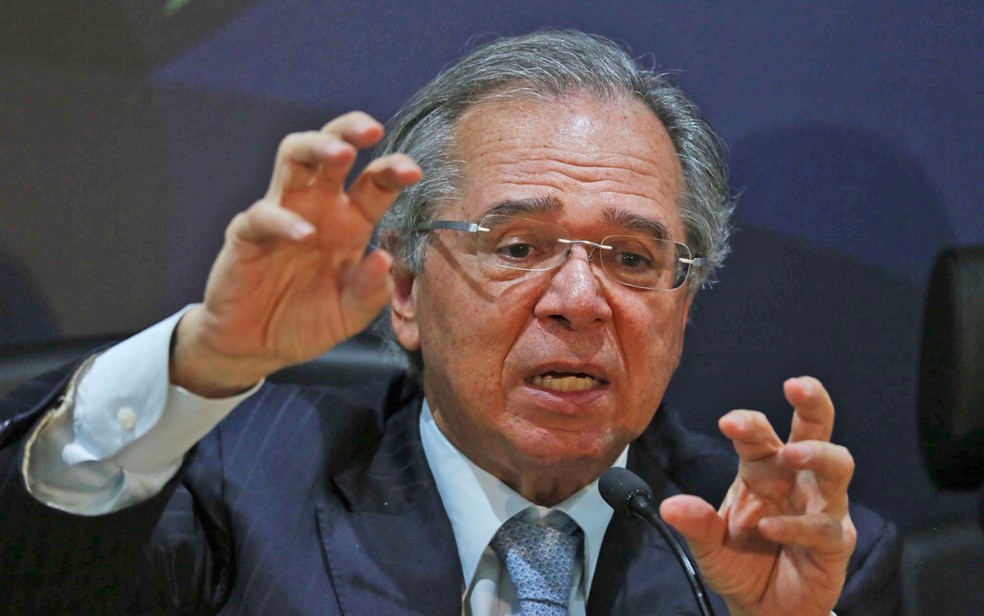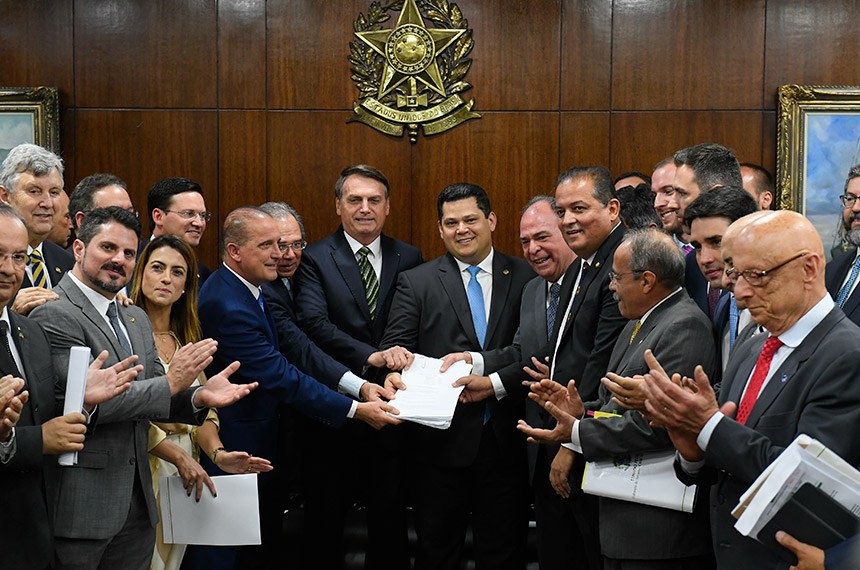RIO DE JANEIRO, BRAZIL – Legislators are still digesting a set of ambitious changes to reduce public spending and assessing which has a chance of becoming a reality. Extinction of municipalities, for instance, will hardly be passed.

Part of the National Congress has shown goodwill with respect to the economic package submitted by Jair Bolsonaro’s Government to the Legislature this week. But there is resistance even among supporters of the three proposed constitutional amendments submitted on Tuesday by Paulo Guedes‘ team.
The main criticism is that the proposals failed to include the people, i.e., lacked social actions that directly target the impoverished and extremely poverty-stricken population – the latter reached 13.5 million this year.
One of the conclusions shared with the story is that the logic behind Paulo Guedes’ plan continues to reflect the years of military dictatorship, in which it was believed that it was enough to improve economic indicators to generate more jobs and eradicate poverty.
“We cannot expect a hypothetical improvement in the economy to reduce inequality,” said Senator Alessandro Vieira, one of the legislators who praised most of the package. He added: “The theory of waiting for the cake to rise and then divide it has not worked in the past and will not work now”.
An item that was little noted among legislators is the one decoupling the Continuous Cash Benefit (BPC) from the minimum wage. This benefit is governed by article 58 of the Constitution. It is paid to the elderly or people with special needs whose family income per capita is a quarter of the minimum wage.
Its revocation, which has previously been unsuccessfully attempted by Bolsonaro’s Government in the Social Welfare reform, is now provided for in article 8, item VII of the Federative Pact’s PEC. That is, if the PEC is passed, the BPC may be lower than a minimum wage.
Legislators also criticize the measure that aims to reduce the number of Brazilian municipalities by one-fifth, those who complain about the merger of mandatory minimum health care spending on education, the inclusion of spending on inactive people in these accounts (even though the government has pledged to retract this item), and those who complain about the protection of categories considered the top civil service in the event of economic crises.
One of the PECs, the Emergency Plan, provides for the suspension of pay raises for all civil servants, except for judges, members of the Prosecutor’s Office, diplomats, military, and police officers.
“In general, the measures are positive because they provide flexibility to administrators. But including spending on inactive workers in the minimum of health and education is an excrescence,” said deputy Felipe Rigoni.

A preliminary study prepared by experts from a shared office staff between Vieira, Rigoni, and deputy Tabata Amaral shows that despite considering the current package positive, a chunk of the economic proposal is still missing.
According to these experts, in order to understand where Bolsonaro’s government intends to get to, it is still necessary to wait for the administrative and tax reforms, the job creation project and the new law on privatizations to be submitted. They say that all these measures are connected because they entail the production of revenue or the reduction of expenses.
Together they are preparing a number of bills with the backing of the Chamber president, Rodrigo Maia, aimed at mitigating the harshness of the liberal measures and which takes into account five key areas: income guarantee for the most vulnerable, productive inclusion, updating the protection network for workers, improving access to basic sanitation and water and the enactment of a law on social responsibility.
Unconstitutional proposals
On the other hand, studies carried out by experts from the opposition benches of the Chamber and Senate show that the package contains unconstitutional measures because they have already been recently rejected during the debate on Social Welfare.
Among them are: the attempt to suspend the transfer of the Workers’ Support Fund to the National Bank for Economic and Social Development (BNDES) and the ban on granting a real adjustment to the salary for up to two years. A legislative proposal that is rejected once in a year cannot be resubmitted for a period of one year. These suggestions have already been rejected by the Chamber during the approval of the Social Welfare reform.
Opponents, who say they would rather discuss a tax reform than the current economic package, dubbed the measures “Usurious PECs”. “Anything that can be saved will be used to pay the public debt. Instead of investing in health, for instance, it will pay the financial capital,” complained Jandira Feghali, the opposition leader in the Chamber.

A further point that is far from reaching consensus is the section in the Federative Pact‘s PEC that provides for the extinction of up to 1,254 municipalities with less than 5.000 inhabitants and self-collection of less than ten percent of their total revenue.
“There are measures that do not deserve our endorsement at this first moment, such as the extinction of municipalities, which would greatly affect Minas Gerais. We will analyze everything in depth,” said Senator Antonio Anastasia, who praised other of Guedes’ proposals.
“This proposal for the extinction of municipalities was placed as a bargaining chip. The Government will bargain with it. He will say he was nice to remove the elephant in the room,” said the PSOL leader in the Chamber, Ivan Valente.
The governors’ claim is purely economic. “The extinction of municipalities with up to 5.000 inhabitants is an important measure to reduce unnecessary spending and revert to public services for the population,” said deputy Carlos Jordy, on his Twitter.
The National Confederation of Municipalities, a body that includes the mayors of the 5,568 Brazilian cities, estimates differently from the government. It says that, according to these criteria, 1,220 run the risk of being reincorporated to others and complains that, “when proposing the extinction of these municipalities, there is great misconception and unawareness of the Brazilian reality”.
“The main indicators to be considered should be the population and the public services provided,” says a text signed by its president, Glademir Aroldi.
The CNM also points out that the suggestion is unconstitutional since the Constitution provides that the emancipation and merger of municipalities are dependent on a referendum by the population living in the area and not on the passing of a new federal law.
Source: El País

